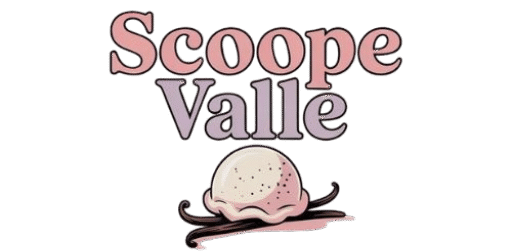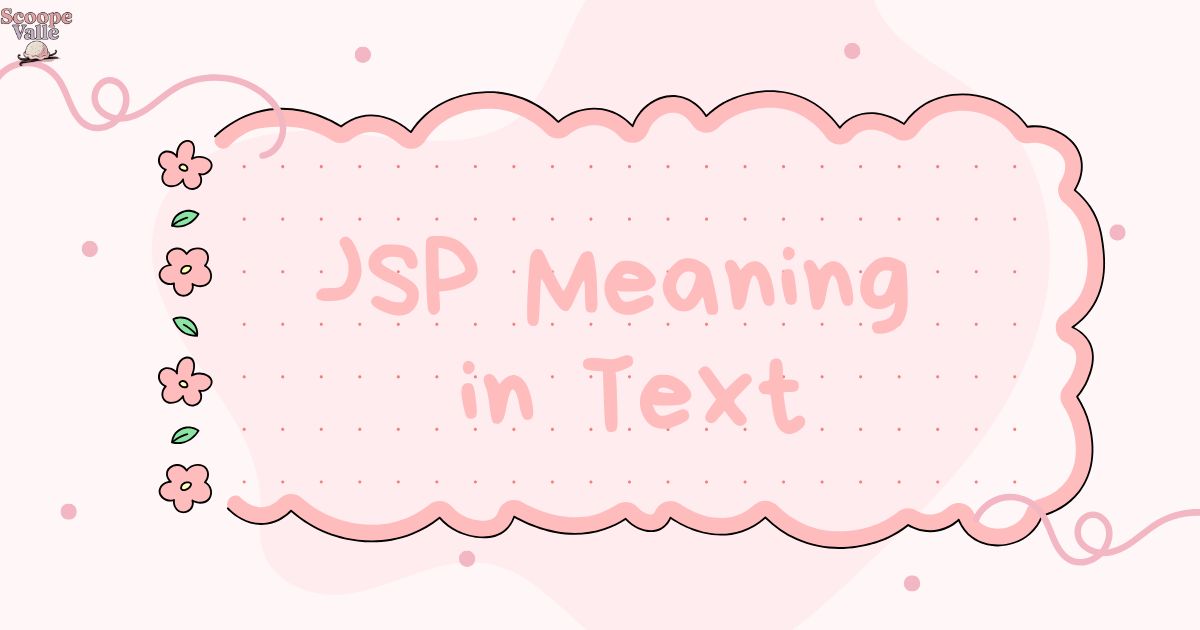Have you ever seen the letters JSP pop up in a message or social media post and wondered what it means? You’re not the only one! Many people are curious about the JSP Meaning in Text because it can sound confusing at first. In simple terms, JSP is a short and polite way to express your thoughts without sounding rude.
In this article, we’ll explain the JSP Meaning in Text, its background, examples, and how you can use it correctly in different situations like texting, gaming, and even work chats.
Definition & Meaning
When it comes to JSP Meaning in Text, it stands for “Just Saying, Please.” People use this phrase to make their message sound polite or gentle. It’s often added after an opinion or piece of advice that might otherwise seem too direct. Think of it as a friendly way to say, “I’m just sharing my thoughts nicely.”
For example:
- “You might want to update your bio, JSP.”
- “That shirt color isn’t your best, JSP.”
It helps soften opinions and keeps conversations friendly.
It’s important to note that JSP can mean other things in different fields. In programming, JSP means JavaServer Pages, a web technology. But in texting or online chats, the JSP Meaning in Text almost always refers to “Just Saying, Please.”
Also read: IONK Meaning in Text: Your Ultimate Guide to This Trendy Slang
Examples in Conversations
Here are a few examples to understand the JSP Meaning in Text better:
- Friend 1: “I think we’re always late to class.”
Friend 2: “True 😂 JSP.” - Online Chat Example:
“You should try a lighter filter on your picture, JSP!” - Gaming Chat Example:
“Bro, use the sniper next round—it’s better, JSP.”
In all these examples, JSP helps make feedback sound kind and casual instead of harsh or rude.
Background & History
The JSP Meaning in Text became popular during the rise of instant messaging apps and social media platforms like Twitter, Snapchat, and TikTok. As people began communicating faster and shorter, abbreviations became common.
Expressions like LOL (Laugh Out Loud) and TBH (To Be Honest) paved the way for JSP, which added a polite touch to digital conversations. It allowed people to share opinions or suggestions while keeping the tone respectful and friendly.
Usage in Various Contexts
1. Texting & Social Media
The most common JSP Meaning in Text appears in everyday chats and social media comments. It’s used to lighten serious statements or make advice sound casual.
Example:
“You should definitely post that photo—it’s amazing, JSP!”
It’s also handy when commenting online, so people know you mean no harm.
2. Gaming
In gaming communities, players often use JSP to give tips or suggestions without sounding bossy.
Example:
“You should guard the left side next time, JSP.”
Gamers appreciate honesty, but using JSP keeps communication fun and respectful.
3. Professional Settings
In professional or team chat environments like Slack or Discord, JSP might appear during informal conversations.
Example:
“Maybe we should send the report earlier next time, JSP.”
However, it’s best to avoid it in formal emails or business reports, as slang might not be appropriate in every workplace.
Common Misconceptions
A common misunderstanding about the JSP Meaning in Text is that it’s rude or sarcastic. In reality, it’s used to reduce tension, not create it. It signals friendliness and politeness, not mockery.
Another misconception is mixing up JSP with its technical meaning, JavaServer Pages. The key difference lies in context: if you’re chatting with friends, it means “Just Saying, Please.” If you’re talking about coding, it’s a programming term.
Similar Terms & Alternatives
| Term | Full Form | Use Case |
|---|---|---|
| JS | Just Saying | Quick or casual texting |
| TBH | To Be Honest | When expressing opinions |
| IMO/IMHO | In My (Humble) Opinion | Polite online discussions |
| No offense | — | Soften critical comments |
How to Respond to JSP
When someone ends a message with JSP, take it as a friendly comment, not criticism. It usually means they’re being polite.
Example:
Friend: “You might want to check your grammar next time, JSP.”
You: “Haha, will do 😅 Thanks for pointing it out!”
So, the best way to respond is casually, with humor or appreciation.
Regional or Cultural Differences
The JSP Meaning in Text can vary based on region. In North America, the UK, and Australia, people use it often in online chats and social media.
In other parts of the world, however, JSP might not be recognized as slang. In some Asian countries, it’s more likely understood as JavaServer Pages from the tech field.
So, before using it, make sure your audience is familiar with English internet slang.
Is JSP Offensive?
No, JSP is not offensive. In fact, it’s quite the opposite—it’s used to make your words softer and more respectful.
Still, tone matters. Even if you use JSP, your message can sound rude if the first part is too harsh.Example:
“You’re terrible at singing, JSP.”
That doesn’t sound kind, even with JSP added!
So, always use it to support kind or constructive feedback.
FAQ’s
What does JSP mean in text?
JSP Meaning in Text is “Just Saying, Please.” It’s used to share opinions politely.
Is JSP used only in texting?
Mostly yes, but it can also appear in gaming chats and casual work messages.
Can JSP mean something else?
Yes. In technology, JSP stands for “JavaServer Pages,” a programming concept.
Is JSP rude or sarcastic?
No, it’s actually meant to make your message sound kind and respectful.
Should I use JSP in professional emails?
No. It’s better suited for informal messages or casual chats.
Conclusion
To sum it up, the JSP Meaning in Text is “Just Saying, Please.” It’s a simple yet polite way to express your opinions, ideas, or feedback without offending anyone. Whether you’re texting a friend, chatting in a game, or messaging online, JSP keeps your tone friendly and respectful.
While it’s not ideal for formal writing, it works perfectly in casual settings. So, the next time you want to give advice or share a thought without sounding too blunt—just add “JSP.”
Tylor John, with five years’ experience, beautifully crafts information on all topics and inspiring readers worldwide with positivity, faith, creativity, love, and hope.

